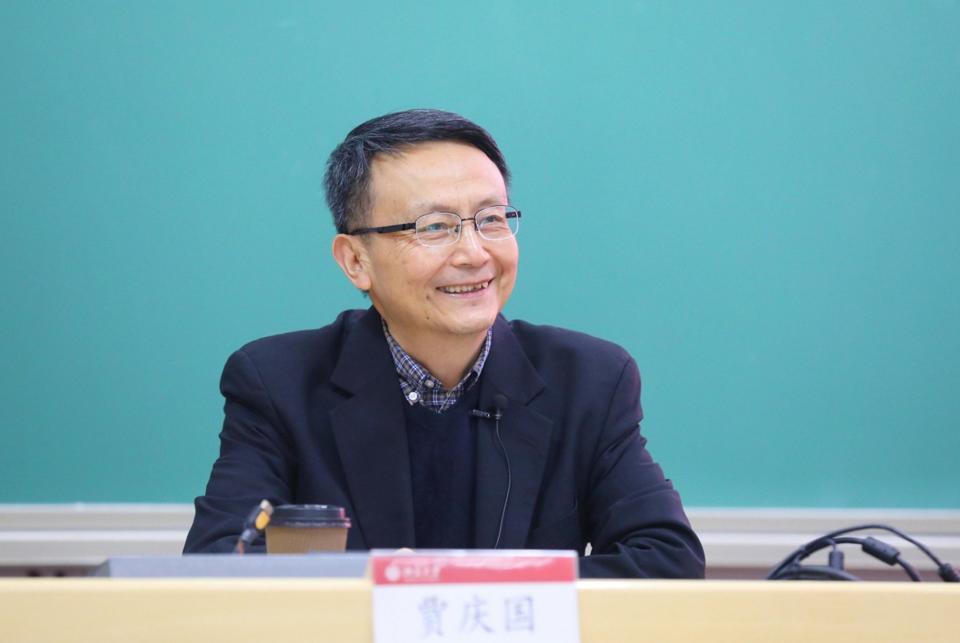'Two sessions' 2024: China urged to ease overseas travel and media rules for academics
A high-profile Peking University professor has raised concerns over "overly stringent" restrictions on Chinese academics and retired officials who wish to take part in international events or speak to foreign media and diplomats.
In a proposal to the Chinese People's Political Consultative Conference (CPPCC), the country's top advisory body, Jia Qingguo said allowing more non-governmental foreign exchanges could help boost China's image.
Jia made the proposal this week during the CPPCC's annual session in Beijing. The proposal was made public on Wednesday by a social media account run by his home institute.
Do you have questions about the biggest topics and trends from around the world? Get the answers with SCMP Knowledge, our new platform of curated content with explainers, FAQs, analyses and infographics brought to you by our award-winning team.

Peking University professor Jia Qingguo, who is also a CPPCC member, has made similar proposals at previous meetings of China's top advisory body. Photo: Peking University alt=Peking University professor Jia Qingguo, who is also a CPPCC member, has made similar proposals at previous meetings of China's top advisory body. Photo: Peking University>
He also suggested dropping requirements for regular academics to get prior approval for overseas exchanges.
Keeping records of the activities would be sufficient for academics who are not in a leadership role and do not often handle classified information, according to Jia, who is a member of the CPPCC and former dean of the university's international relations school.
Chinese scholars generally need to seek approval to attend conferences overseas. It has also become common for universities to require academics to get permission before speaking to media based outside mainland China.
Beijing has tightened restrictions on information and international exchanges in response to what it has described as "increasing risks" of espionage by the United States and its allies.
A revision of China's state secrets law, which will come into effect in May, will tighten restrictions on state employees with access to state secrets. These employees already need prior permission to travel abroad, but the revision will extend this requirement to a certain period after they leave their positions.
The revision broadens the definition of "state secrets" to include any matter designated by the National Administration of State Secrets Protection.
Jia also proposed "policy adjustments" to encourage retired officials to join international events, which would add Chinese perspectives to unofficial channels.
"Official resources are limited, and many issues cannot be thoroughly addressed by official statements, which are often seen as mere propaganda," he said.
Jia has made similar proposals in past years, but there has not been any notable loosening of restrictions on Chinese experts' engagement with foreign entities.
Negative views on China have proliferated in recent years - especially in high-income countries in North America, Europe, and Asia - over Beijing's handling of issues such as the Covid-19 pandemic, human rights and economic overcapacity.
"External reasons [for the sentiments] include inaccurate reporting, if not defamation and slander by American and Western media," Jia said.
But he admitted there was "substantial room for improvement" domestically on the management of overseas exchanges, as the limitations had hindered efforts to "tell China's story abroad".
"There are overly stringent restrictions on scholars and retired officials travelling abroad, participating in international conferences, giving interviews, or meeting foreign diplomats in China," he said, adding that interviews with foreign journalists were "essentially not allowed".
Jia urged a clear and fair accountability system in academic institutes, saying that under the present system, an organisation's leaders would "not be given credit for a hundred effective exchanges, while [they] are held responsible if one problem occurs".
This article originally appeared in the South China Morning Post (SCMP), the most authoritative voice reporting on China and Asia for more than a century. For more SCMP stories, please explore the SCMP app or visit the SCMP's Facebook and Twitter pages. Copyright © 2024 South China Morning Post Publishers Ltd. All rights reserved.
Copyright (c) 2024. South China Morning Post Publishers Ltd. All rights reserved.

 Yahoo Finance
Yahoo Finance 